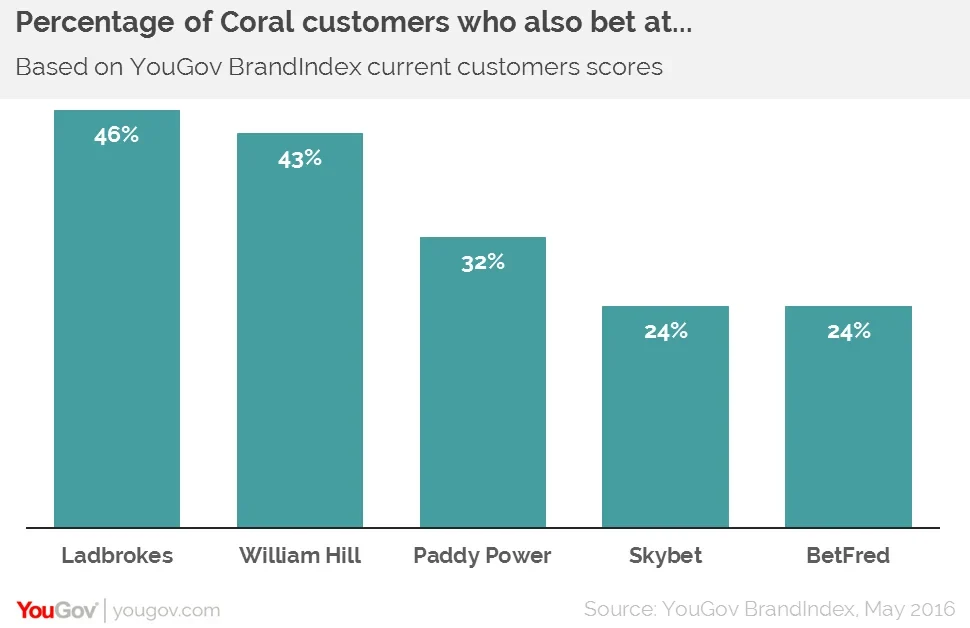In recent years online gambling has expanded rapidly on the back of easy-to-use betting apps and engaging advertising.
Last summer I discussed the changing nature of the gambling industry with younger people being more likely to bet online.
By comparison, it seems that traditional bookmakers have been rather cast into the shadows. Last week it was announced that the proposed merger of Coral and Ladbrokes would see the closure of 400 betting shops.
But is the merger a good fit? YouGov BrandIndex data suggests that it is. Currently, approaching half (46%) of Coral customers also place bets at Ladbrokes, and over a quarter (27%) of people who gamble with Ladbrokes also use Coral.

Digging deeper into the data, there is a divide between newer online gambling sites and more established traditional betting shops among customers of the high street chains. When it comes to people who use Coral and Ladbrokes, online alternatives – such as SkyBet, BetFred, and Bet365 – are notably lower down the pecking order.
However, such bunching does not seem to happen among customers of some internet betting companies. For example, those who gamble with Bet365 are most likely to also go to Paddy Power (32%), William Hill, or Ladbrokes (both 31%). There are similar numbers among Betfair customers.
Notable by its absence from this list, though, is Coral – it ranks lower than their high street rivals among users of these online gambling brands. This implies that it has not been as successful as other traditional bookies in appealing to younger online gamblers.
The key question for Ladbrokes and Coral now will be how the new joint company approaches the market. Marrying two organisations is hard enough without the complicating factor of having to work out which brand works best online or offline.
These are two very distinct offerings with very diverse customer bases – one younger and high tech, the other older and more traditional.
This article originally appeared in City AM
Image from PA














